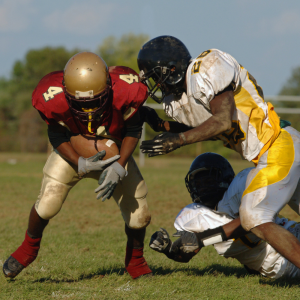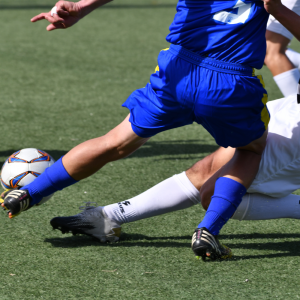Sports Injuries to the Head: What to Know

Fall sports are in high gear, and whether your student athlete plays high school football, soccer, volleyball or middle school baseball or softball, the risk of concussion is one to take seriously.
“Unfortunately, there is no risk-free way to compete in sports, but following preventive guidelines can bring parents peace of mind when their player takes the field or court,” said Kevin Londe, DO, a family medicine provider with Memorial Care in Lincoln. “Wearing the appropriate equipment, especially helmets, consistently and correctly is the first step. But requesting a preseason baseline exam is helpful in the event something should happen.”
In recent years, the Illinois High School Association (IHSA) has increased its awareness efforts regarding the risks of concussions. The IHSA now requires coaches, officials and marching band directors to regularly complete a program on concussion management. Students and parents alike are required to read and sign an agreement that they have read information about concussion signs, risks and symptoms.
A concussion is a traumatic brain injury that can interfere with the way the brain works for a short period of time. Common symptoms can include:
- Headache
- Irritability
- Unusual fatigue or sleeping more or less than normal
- Trouble with focus and/or remembering things
- Feeling dizzy or light-headed

“It’s hard in the heat of a competition to pull a student athlete from play, but a second blow to the head while a concussion is healing can lead to a more serious injury with longer lasting or worse symptoms,” said Dr. Londe. “The best course of action is for the athlete to rest from both mental and physical activities and return to a regular routine gradually. Talk with your pediatrician or family medical provider for a return-to-play plan.”
After a head injury – regardless of whether it is sports-related or not – seek medical attention right away if your child is unable to recognize familiar people or places, vomits, displays unusual behavior like crying uncontrollably, slurs speech or loses consciousness. Rarely, symptoms of a concussion can signal a more severe brain injury with bleeding in or around the brain. That could indicate increased pressure on the brain, which can be life-threatening.
“We all love to cheer our kids on in their sports activities,” said Dr. Londe. “We need to make sure we keep them as safe as possible to maintain their health and well-being while playing.”
Looking for a healthcare provider? Visit Memorial Care to view providers in our 16-county area who are accepting new patients.
